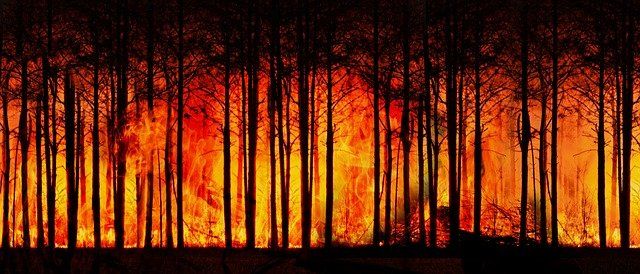
Wildfires, floods, extreme cold; the climate is tangibly changing all around us, but are we accelerating towards our eventual extinction? Here we are again, yet another Gen-Z nobody talking about climate change – but this time is different, boomers.
Unless you’ve been living under a rock you may have noticed large sections of the planet have been on fire. Algeria, Siberia, Italy Greece, Turkey, Canada and the United States are all currently ablaze. Wildfires are a natural part any forest’s lifecyle, but the severity and consistency of these blazes suggest a worsening situation.
While it’s easy to dismiss climate activists for bothering us, it’s much harder to ignore the newest report by the IPCC the United Nations International Panel on Climate Change. The report speaks plainly about climate change and its effects not just on people alive today, but for future generations too.
So what’s in this “damning” report then?
The report is a “code red for humanity” according to the UN chief. Without imminent action, climate catastrophe is imminent. While there is hope that substantial cuts in emissions could stabilise rising temperatures, the time has passed to prevent change altogether.
Ahead of the November COP26 conference in Glasgow, the tone is now set: warming in the atmosphere is unequivocally the result of human influence on the climate.

The report states that rises in temperature over the last 50 years have been greater than any period in the last 2000. It is this rise in temperature that is linked to many of the alarming weather and climate extremes already affecting many alive today.
What are the main takeaways?
While it’s hard to sum up a 2000-page-long document in neat bullet points, here are some takeaways worth noting:
If you find yourself at a sudden loss for words like I did when I first read the report then you will understand what is at stake here. Thankfully we live in an information age: reading some of the materials yourself could help you and your business/firm towards on the road towards being more sustainable. You do not need to glue yourself to the M25 to make difference.
For political leaders, the report is another in a long line of wake-up calls